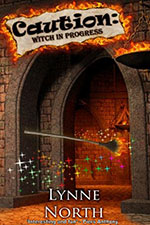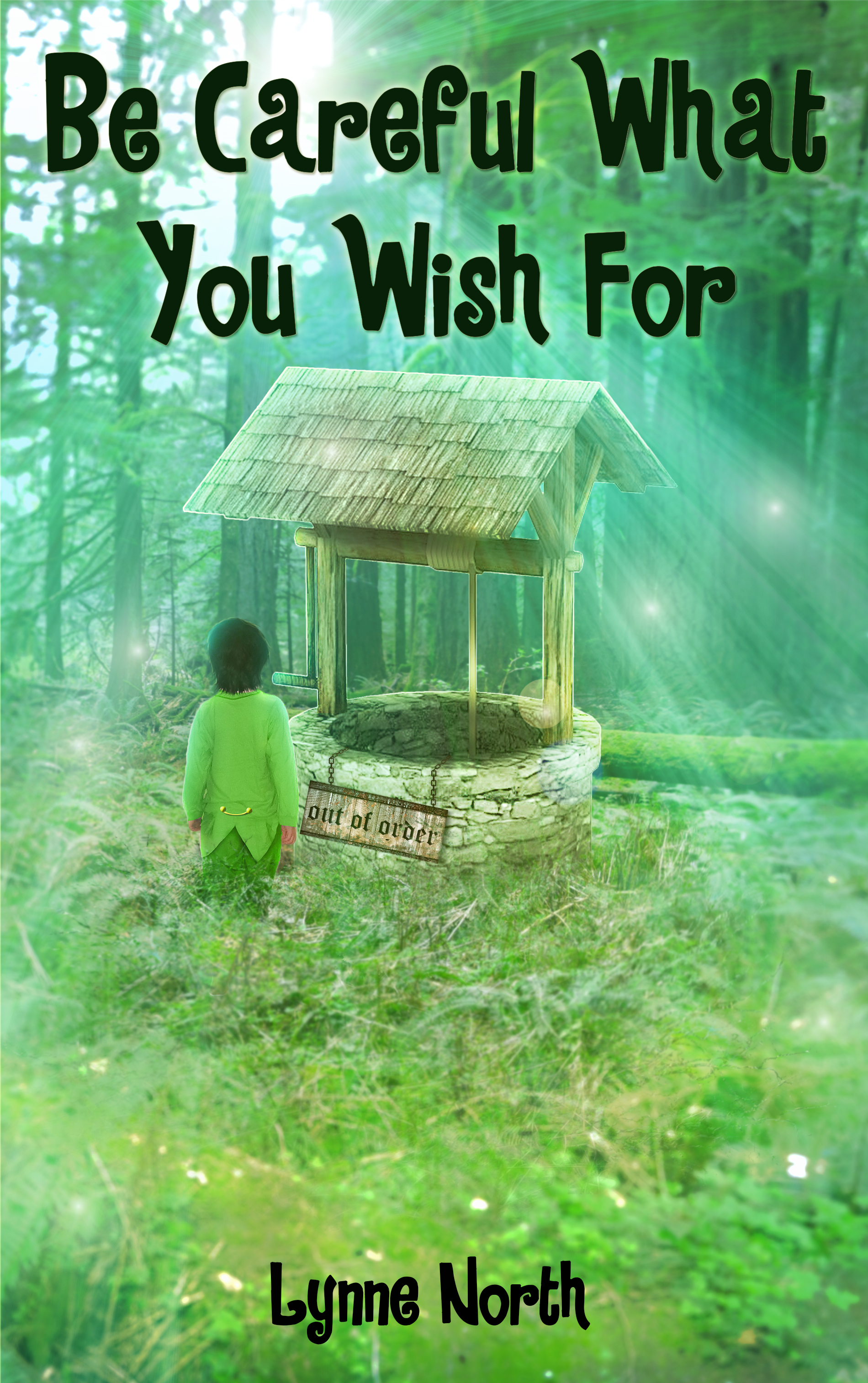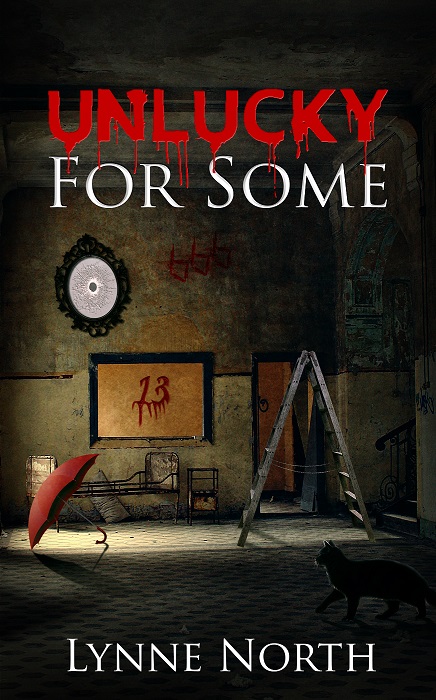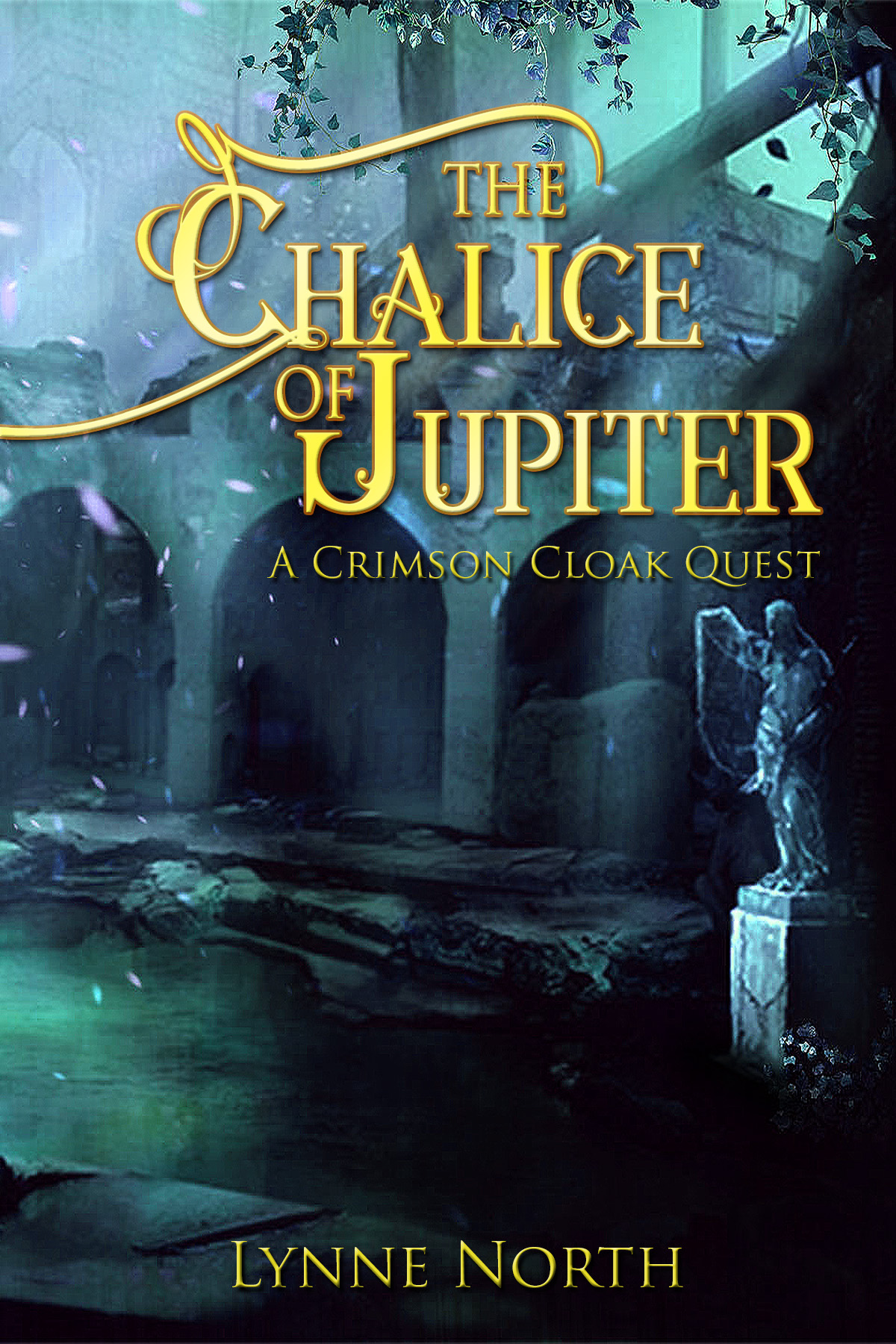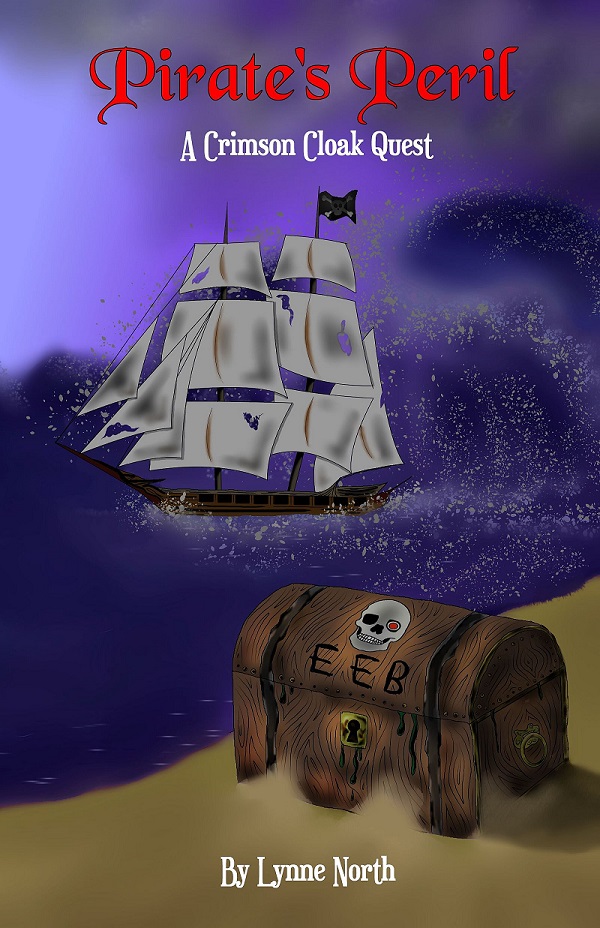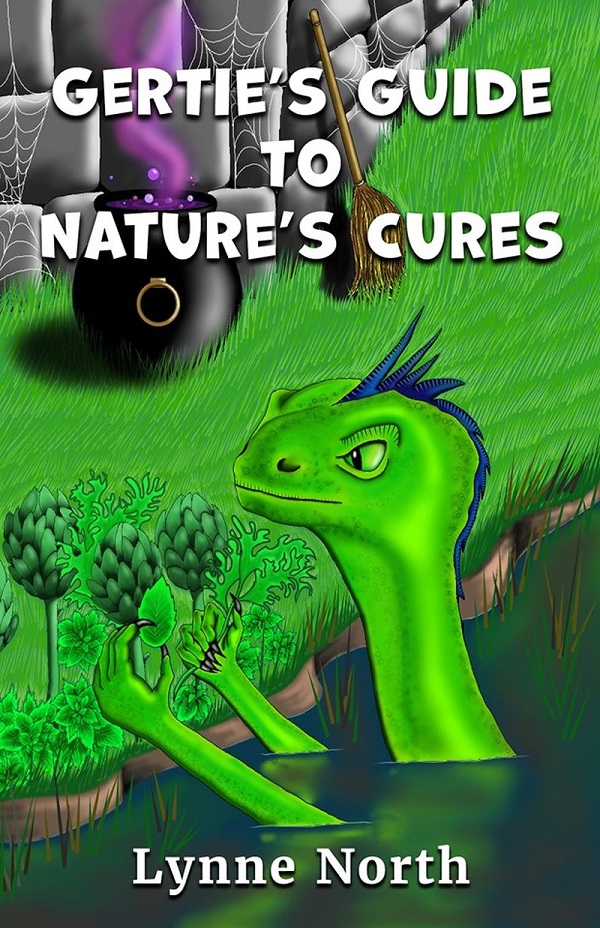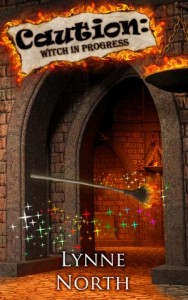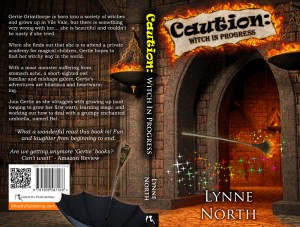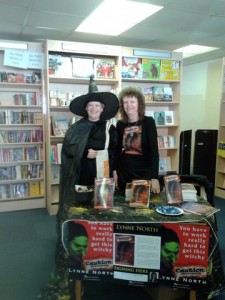lynne
Guest Post for BookWormInk: 'The Difficulties of Writing for Children' by Lynne North
Is it difficult to write for children, you might ask? Surely it must be easier than writing for adults. The books are shorter, the words used are easier to understand, and will children even notice if you make minor errors?
Oh yes, they’ll notice. And so will the publisher you are hoping will publish your book. Writing books for children is just as difficult as writing any book. Maybe the process is even more difficult. Why do I say that? Because children have short attention spans, therefore if you don’t grab their interest early on in the story, and keep it throughout, your book will soon find its way to the ‘boring’ pile.
Writing for children should be fun, as should any other writing. If it becomes a chore, then the reading will have the same effect so this is a no win situation. If you are enjoying what you are writing then there is far more chance of keeping your readers interest. You must also love your characters and build them throughout the story, or they too will fall flat.
The role of writing for children can be quite opposite to writing for adults in some aspects. In writing adult books you can give your opinion and try to impart your own points of view on your readers. You can try to get them fired up about the things that matter to you. Young readers are quite different. Your role here is simply to gain and hold their attention from beginning to end by providing enjoyment in the story you are telling. Make them laugh, take them on adventures, give them a challenge. Character association plays a major role in children’s literature, so create good, strong characters that deserve the attention. You want your young readers to experience all their favoured character goes through, the highs, lows, difficulties, and the ultimate triumphs. Your stories must be magical, enthralling, exciting, but never cause any harm or upset to the young reader. In general, they need a happy ending. No matter what happens throughout the book, what trials and tribulations keep your reader wanting to know more, the ending must be a good, happy, gentle one.
The main thing to remember in writing for children is to keep it quite simple. If they have to pause to work out what you mean, then the thread will be lost and they will give up. You were a child too once. What did you like to read? What didn’t you enjoy? Why? Use your own experiences to guide you when writing for children. No one can enjoy a good story quite as much as a child, because they don’t just read books, they live them. They don’t just like characters, they become them. If a child wants to be your main character, then you are on a winning streak.
Is all this difficult to achieve? Yes, it is. But if you really want to write for children, you will get there. Create a story that grabs the attention from the first page, flows through the middle with excitement, set-backs, achievements, and then rushes to the final page leaving your young reader almost breathless in their excitement to read more. When you have learned to do all this, your next book will be much easier to write!
Lynne North is the author of ‘Caution: Witch in Progress’, a children’s humorous fantasy published by Ghostly Publishing in 2013 and launched at Earl’s Court Book Fair. ‘Caution: Witch in Progress’ is available in paperback and kindle on Amazon worldwide.
Author Interview and Giveaway!
Great new Lynne North interview from One More Chapter, and a chance to win a free copy of a’ Caution: Witch in Progress’ E-book to benefit the Spina Bifida association!
Waterstones stock Caution: Witch in Progress!
The Saturday Spectacular with Guest Author Lynne North
Only just back from holiday, and already I am the subject of a great online interview! Follow the link to check out Bella Harte’s Saturday Spectacular!
Feature Friday by Alesha L. Escobar: Caution:Witch in Progress
I didn’t get into reading fantasy literature until a bit later in life, but something tells me that as a kid with a voracious appetite for books, I would’ve loved to have picked up Lynne North’s Caution: Witch in Progress. I’m very delighted to feature this book to you all, so take a peek and check out Ms. North’s work!
Genre
Children’s Fantasy, humor
Book Description
Gertie Grimthorpe is born into a society of witches and grows up in Vile Vale, but there is something very wrong with her…
She is beautiful and couldn’t be nasty if she tried. When she finds out that she is to attend a private academy for magical children, Gertie hopes to find her witchy way in the world. With a moat monster suffering from stomach ache, a short-sighted owl familiar and mishaps galore, Gertie’s adventures are hilarious and heartwarming.
Join Gertie as she struggles with growing up (and longing to grow her first wart), learning magic and working out how to deal with a grumpy enchanted umbrella, named Bat.
“
“What a wonderful read this book is! Fun and laughter from beginning to end. Are we getting anymore ‘Gertie’ books? Can’t wait!” – Amazon Review
BOOK SIGNING
How children relate to positive role models in fantasy books
All good books contain role models that the reader strives to be like, and this is especially the case in children’s books. Children are like sponges who soak up everything around them, and when it comes to books they don’t just read them, they live them. They like to read about characters who have to face hard tasks, make difficult decisions, and who contribute greatly to achieving necessary aims. This is never more so than in fantasy books where worlds depend on the achieving of key tasks by brave adventurers. These characters usually have traits that the children already admire, or something about the situation the character finds themselves in reminds the child of their own life. It is all down to association, or striving to be a better person. We all like to think of ourselves as facing adversity with courage, strength and cunning, and in books we can do just that from the safety of our armchair.
Books play a starring role in the development of children’s personalities. They read something they like, associate with a lead character, and try to be more like them in real life. Providing the character has positive qualities to imitate, this is a great influence. Fortunately, most children’s books do encompass good role models!
Reading books is a vital part of children’s lives, and should be encouraged at all times. In fantasy they can lose themselves in worlds beyond their reach in adventures they can experience safely, and in quests that always end in success and the conquest of Good over Evil.
Role models come in many shapes and forms. They might be brave heroes who wield magic swords, Princesses kindly ruling their kingdoms, ordinary people thrust into other magical worlds, or creatures given human qualities by the book’s author. Anything goes in fantasy, because the world is introduced and built by the pen. It is the author who has to make their characters believable and likeable so that the reader will cheer them on when they face adversity. This is how role models are made, and the best books leave the reader longing to see more about their favourite character.
There is certainly no shortage of role models in Ghostly Publishing’s wide selection of children’s fantasy books. Claire Kinton introduces us to Archie Fletcher and Sarah Walker in her popular The Game Trilogy, characters who must show courage to ensure life goes on as they strive to triumph over adversity. In Neil Trigger’s Midnight Chronicles we meet Bethany who is young, but strong and determined. From book to book we want to read more about her. Lynn McInroy sets Feo on a seemingly impossible task in The Dragonstone. Will he succeed? The only way to find that out is to read the book .Lynne North brings Gertie Grimthorpe into our lives in ‘Caution: Witch in Progress’. Gertie is a witch, but somehow can’t get the hang of it. Follow Gertie through this humorous romp as she tries to find her true self. In Katy Krump’s fantastic Blue Dust series we meet Qea who has to become hard and determined to face the trials ahead of her. Rich Pitman gives us Jimmy Threepwood, brought up unloved and uncared for but with a fearful mission to fulfil. Oliver, a young bullied child created by Sarah Manfield in T-Cup and the Dream Team Fairies is a role model very easy to associate with. From the pen of David Satchell comes a role model with a difference. Findol is a dolphin who must give up his nice safe life in order to fulfil his destiny. These are just a few of the amazing characters you can meet via Ghostly Publishing. All play different roles but with a common goal of achieving the success they seek. It is easy to learn to love them all, and to want to cheer them on through their many trials and tribulations. No one can do this quite as well as a child.
Interview with Karen Stretch, partner at ‘Look Into Books’, Cleveleys
1. For someone who loves books as much as I do, walking into a book shop is like entering an Aladdin’s Cave. Have you always loved books, and is that what persuaded you to want to open your own book shop?
Oddly enough, I have memories of playing ‘bookshop’ as a little girl – often I would write my own ‘books’ and get the toy cash register, and voila! I loved to read, and would often have three or four books on the go at once. It was always a treat to go to the book shop and get the next Noddy book in the series, and later the Famous Five stories. Book shops are so rare these days, and I think it’s important to continue the joy of reading for future generations.
2. What genre of books do you find are your best sellers in Cleveleys, or does it vary day to day? I know you keep a weekly list of your best sellers, and wonder if they follow any kind of trend in and out of the holiday season?
Our best sellers usually follow a nationwide trend – basically anything with lots of publicity on T.V. or radio, or anything with a film adaptation does well. There’s not too much variance in summer but at Christmas biographies certainly sell well.
3. A lot of independent book shops seem to be struggling in the shadow of the major book outlet companies, yet you recently moved to larger premises. What do you see as the secret of your success in the book selling industry, or is that really a secret!
I don’t know if it’s really a secret, but we pride ourselves on providing a service that you wouldn’t get at a chain store. We know our customers and can see what they want from the ground level, so to speak, and we aren’t controlled by a head office somewhere hundreds of miles away. Our ordering service is quick and we enjoy our little chats with our customers, who hopefully enjoy chatting with us! It’s nice to have face-to-face interaction with a person rather than a book arriving in a cardboard box.
4. Do you welcome the chance to meet authors, and enjoy book signing events? Do you see this as a way to attract more customers to your already popular shop?
It’s exciting for us to be able to meet authors and run events with them. Providing a hub for the local community is one of our key aims and events are a good way of achieving this. I think especially in a town like Cleveleys which has a large seasonal population as well as year-round residents it’s important that the town has a strong identity and community.
5. What do you see as the future for ‘Look into Books?’ Do you have further ambitions that you have yet to realise.
To continue to provide the people of Cleveleys with a local, independent book shop which they can rely on.
Thanks very much for your great answers, Karen. I wish you every success with your fantastic book shop. Looking forward to meeting you again at my book signing for ‘Caution: Witch in Progress’ on Saturday 14th September at 1pm!
Look into Books, 132 Victoria Rd West, Cleveleys, Blackpool.
How to Write Humour
Well, that’s obvious, isn’t it, you might say. Write something funny. But is it that easy? Think about it. How many programmes on TV have some people rolling about in hysterics, and leave others cold? Do you see what I mean? Humour is a personal thing, and the hardest part about writing it is that if you try too hard, it falls flat. If that happens too often in your book, then the reader will give up. That is something you seriously do not want to happen. So, how to write humour. It isn’t as easy as it sounds, is it?
Let’s learn from the experts. You will have your own favourites. Study them. What do they do, and how do they do it? In my opinion the best writer in the world of humorous fantasy is Terry Pratchett. The humour seems to flow from his fingertips with ease and effortless regularity. It probably isn’t that easy for Sir Terry, but the thought that it is adds to the humour. One of my favourite classic lines from Terry (and there are so many) is this extract taken from The Wee Free Men (Yes, even the title is funny):
“Ordinary fortune-tellers tell you what you want to happen; witches tell you what’s going to happen whether you want it to or not. Strangely enough, witches tend to be more accurate but less popular.”
Hope Terry won’t mind me quoting that. Do you find that funny? I certainly do, but Terry writes it in all seriousness as if simply stating a fact. I think that is part of his success. He doesn’t force his humour down your throat. He lets it sit there quietly and unassumingly inviting you to laugh. What a writer.
So, the best humour sneaks up on you unexpectedly and blends in with the tale. Having a character tell a really funny joke won’t have the same impact because a) the reader might not find it funny and b) you are telling your reader to laugh. The reader is in charge when reading your book. They don’t want to be told what to do.
Shall we get back to how to write humour? This will come from within, and be your own personal touch to your writing. If you want to write humour, then you must be someone who likes to laugh and who has a gift for amusing friends in ‘real life’. You say something unexpectedly, someone laughs. Remember it, and use it. The best humour is uncomplicated and comes naturally. Never have a character say something like ‘This is really funny, you’ll split your sides.’ That is asking for trouble. You are expecting a laugh, but the funny remark that is now expected might not have the desired effect. Have humour sneak up on your reader. If they don’t find it funny, then you have not promised them that it will in the first place. If it does make them laugh, then its simplicity has done the trick.
You will find your own niche when writing humour, and the more you write, the easier it will get. Never be without a pen and paper, and if you hear or see something that amuses you, jot it down. This is not to ‘copy’ funny things that others say or do, but to get you to see humour in the simplest things. Once you begin to see it, it will be much easier to write.
I find that when writing humorous fantasy, I like to turn the real world, and its expectations, on its head. I think that this works well in ‘Caution: Witch in Progress’ where my main character is a young witch. Warty, yellow and ugly she is not. Gertie is cute, pretty, blonde-haired and blue-eyed. That doesn’t make her journey into witch-hood any the easier. Nor does the fact that any spells she tries tend to have the opposite effect. Do you see what I mean? If readers are expecting everything to be as it is in life, then the unexpected can amuse them. I hope so anyway! I follow a similar theme in ‘Be Careful What You Wish For’, a book that is now going through its final draft. Finn is a leprechaun, but unfortunately one who was never blessed by the Good Luck Fairy. Not all leprechauns are lucky, and Finn proves this point many times over. Without giving too much away, Finn gets himself into something of a pickle far from home, and has to make his way back. Many creatures of Irish myth help or hinder him along his way, but not a one of them will be anything like you have read before…
So, my slant on humour tends to be to turn the expected on its head. I shall try to provide an example that I haven’t already used in one of my books. Let’s see, maybe you will write about an ogre. So, he is big, fat, ugly, and fierce and people are terrified of him. Right? Well actually, no. This ogre is called Cecil. He talks with a lisp in a very soppy voice and is terrified of insects. The fact that he lives in a draughty cave full of spiders doesn’t help him one bit. Cecil doesn’t sleep much in fear of being scuttled across when he closes his eyes. He also gets sick of heroes trying to make a name for themselves by riding along to try to part his head from his body. Poor Cecil tries to keep himself to himself, but isn’t very happy. When the chance comes to help a village in peril, will he take it, or is he too afraid? Do they deserve his help, even? Only by turning the pages will the outcome be revealed…
How does that sound? Have I given you any ideas about how to write your own brand of humour? I hope so, but whether this has made you want to dive for your pen or not, thanks for reading it, and the best of luck with all your writing!
Author Interview on awesomegang.com
Tell us about yourself and how many books you have written.
I live in the north west of England and work as a data analyst for one of the local Health Authorities. I have been a prolific reader all my life, and for many years have spent the majority of my free time writing. As well as being educated up to degree level, I have completed courses and received diplomas from ‘The Writing School Ltd’ and ‘The Academy of Children’s Writers’. My aim in life has always been to write, and I have had a sideline of freelance writing for more years than I like to admit to having lived. This has mainly involved published articles in such magazines as ‘Prediction’. I have also completed two children’s novels, ‘Caution: Witch in Progress’ and ‘Zac’s Destiny.’ ‘Caution: Witch in Progress’ was published by Ghostly Publishing in 2013 and is available in paperback and on kindle on Amazon worldwide. I am currently working on a very different children’s humorous fantasy, ‘Be Careful What You Wish For’, and a fantasy novel for young adults titled ‘Dimensions’.
What is the name of your latest book and what inspired it?
My children’s humorous fantasy,’ Caution: Witch in Progress’ was published this year by Ghostly Publishing, and launched at Earl’s Court Book Fair in April. I have always loved to read fantasy. It is escapism into worlds we can only imagine, full of colour and fascination. Terry Pratchett introduced me to humorous fantasy, and I have never looked back since. What a writer. I like to think that he has been my inspiration for my humorous writing, and my witches of course! As to witches in general, I feel they have had a hard time of it over the years. There may be some bad ones (though mine are not!) but throughout history alleged witches just seem to have borne the brunt of other people’s misfortunes. If someone’s crops failed, they blamed the little old lady with the hunched back who lived down the road for walking past. If their cattle died, the cross-eyed woman stared at them funny. Tell me, how else could she stare at them? I thought it was time to follow in the footsteps of my hero, Terry, and try to raise an appreciation for witches for a change. Many of the persecuted ones in our dim and distant past were probably little more than healers and herbalists. ‘Caution’ is mainly just a story that was inside me. I love to write humorous fantasy, and even if I’m not trying to be humorous, my writing has a habit of turning that way unless I keep a very tight rein on it. I began the story and it developed quickly. Before long the characters took over, and kept me going until they had reached their last page.
Do you have any unusual writing habits?
I tend to approach writing in a way that some might find long-winded and time consuming, but it works for me! I like to scribble my ideas down quickly using pen and paper in long-hand. I write each chapter in this way, then before I get on with the next one I type up the chapter on my computer. At this point, I take more care with spelling and punctuation, and tend to add bits, or even take them away. Once completed, I read through the chapter and make any more necessary changes. I then send the chapter to a friend who proofreads for me. In this way, I feel that the first draft of my book has already had at least some polish along the way saving time in rewrites later.
What authors, or books have influenced you?
Terry Pratchett has to be my main inspiration these days. He is a legend in the world of humorous fantasy. I was also greatly inspired and introduced to fantasy by JRR Tolkien in my teens. Since then my favourite genre has stayed firmly in fantasy. I feel that authors are likely to want to write in the same genre they enjoy reading. This is certainly true in my case, anyway. Along with Terry Pratchett I currently love to read Terry Brooks, Joseph Delaney, Angie Sage and F.E.Higgins, to name but a few.
What are you working on now?
I have just completed the first draft of another children’s humorous fantasy titled ‘Be Careful What You Wish For.’ Here is a brief synopsis:
‘Finn is a bored young leprechaun. He wants something exciting to happen, but never having been blessed by the Good Luck Fairy, he soon gets far more than he bargained for. This is no fairy tale…’
I am also working on a YA fantasy titled ‘Dimensions’
‘When Leah first sees the old necklace in the window of an antique shop, little does she know what life has in store for her. Increasingly drawn to the pentacle on a silver chain, Leah finally buys it and soon finds herself having strange dreams about Stonehenge. Trying to put the dreams to rest, she visits the ancient site; only to be transported into another dimension.
Leah arrives in a besieged land of wizardry, magic and demon might. The land needs the help of an Outlander, and to Leah’s disbelief and shock, she has been called.’
What is your best method or website when it comes to promoting your books?
I tend to try to promote as widely as possible. I find new sites by surfing the net and Facebook. I approach any sites that look suitable for promoting my work, and try to get my book advertised and/or author interviews. I must say I am very impressed with the support offered to authors by the Awesome Gang, who not only provide great promotion themselves, but also offer links to other great promotional sites. Well done for that, you guys!
Do you have any advice for new authors?
Don’t give up. You are very unlikely to have your life’s work snatched up by the first publisher or agent you send it to. Be prepared for the long haul, but believe in yourself, and don’t lose hope. There could be someone out there just waiting for your book to drop on their desk. The hard part is finding them…
What is the best advice you have ever heard?
I think the best advice comes from authors who have made it, but are honest about how hard it is to get to the point where your books are published and selling. It is always useful to read famous authors slants on the process of becoming a published author. It is a hard slog, but well worth it in the end.
What are you reading now?
I am currently reading ‘Snuff’ by Terry Pratchett. Terry has never disappointed me, and I don’t think he ever will.
What’s next for you as a writer?
Next will hopefully be the publication of my sword and sorcery children’s fantasy, ‘Zac’s Destiny’ later this year, then the acceptance for publication of ‘Be Careful What You Wish For’. Who knows, if there could be a film version of any of my books in the future, then my dreams would be complete! If I shoot enough arrows out there, one might hit the target…
What is your favorite book of all time?
I probably have to give credit to Lord of the Rings for that. An epic read, indeed, and still as popular now as it ever was. Lord of the Rings has stood the test of time, and should still be classed amongst the greats in another hundred years or so.




